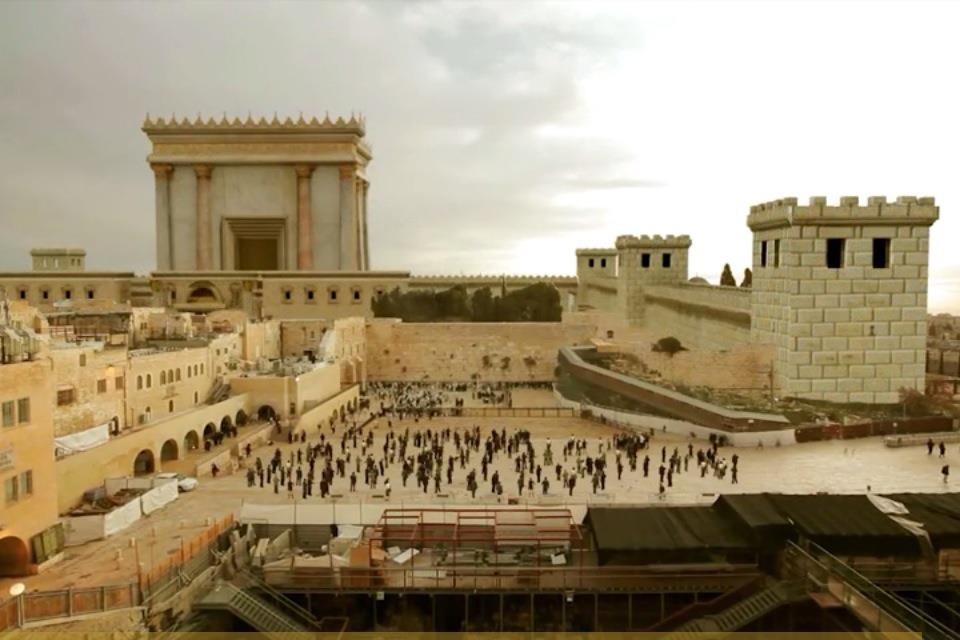 Rabbi David Etengoff Dedicated to the sacred memories of my mother, Miriam Tovah bat Aharon Hakohen, father-in-law, Levi ben Yitzhak, sister, Shulamit bat Menachem, sister-in-law, Ruchama Rivka Sondra bat Yechiel, Chana bat Shmuel, Yehonatan Binyamin ben Mordechai Meir Halevi, Shoshana Elka bat Avraham, Tikvah bat Rivka Perel, Peretz ben Chaim, Chaya Sarah bat Reb Yechezkel Shraga, Shmuel Yosef ben Reuven, Shayndel bat Mordechai Yehudah, the Kedoshim of Har Nof, Pittsburgh, and Jersey City, and the refuah shlaimah of Mordechai HaLevi ben Miriam Tovah, Yocheved Dafneh bat Dinah Zehavah, and the health and safety of our brothers and sisters in Israel and around the world. “And they shall make Me a sanctuary (v’asu li mikdash) and I will dwell amongst them (v’shachanti b’tochom),” is one of the best-known verses in our parasha. (Sefer Shemot 25:8, this, and all Bible translations, The Judaica Press Complete Tanach) The very next pasuk, however, employs the word, “mishkan,” in place of mikdash : “According to all that I show you, the pattern of the Mishkan and the pattern of all its vessels; and so shall you do.” Rabbi Chaim Ben Attar zatzal (1696-1743), known as the Or HaChaim Hakadosh after the name of his commentary on the Torah, addresses this change in terminology: … It appears to me that when the Torah says, “v’asu li mikdash,” it is referring to the general positive commandment that incorporates all times, whether [the Jewish people were in] the desert or when they entered the land [of Israel], as well as the entire period the Jewish people would dwell therein throughout the generations. [Moreover,] the Jewish people were obligated to create a mikdash, even in the Diaspora (galiot), [but were prevented from so doing, since] we find that Hashem forbade all other places [outside of Israel] from the point in time of the construction of the Beit HaMikdash, as it says in the Torah: “For you have not yet come to the resting place or to the inheritance, which the L-rd, your G-d, is giving you.” (Sefer Devarim 12:9) This, then, is why the Torah does not declare, “v’asu mishkan,” in order that we may understand that the creation of the mishkan was a mitzvah solely at that time. [This is the reason the Torah at first] commands the general mitzvah [to construct the mikdash] followed by the specific [obligation of what was needed] to be built in the desert, which was not the place to create a building of stones… (Or HaChaim, Sefer Shemot 25:8, translation, brackets and paratheses my own) According to the Or HaChaim, the Torah first utilizes the term, mikdash, and then mishkan, to teach us a crucial lesson: the mitzvah of the mikdash is obligatory at all times in Eretz Yisrael; in contrast, the mitzvah of the mishkan was time-bound, namely, its construction was a commandment to the Dor HaMidbar (Generation of the Desert) as a temporary stand-in for the yet-to-be-built Beit HaMikdash. As such, the Torah commands us, “v’asu li mikdash,” rather than “v’asu li mishkan.” The Or HaChaim includes a citation from the Rambam (Maimonides, 1135-1204) that strongly supports his position: It is a positive commandment to construct a House for G-d, prepared for sacrifices to be offered within. We [must] celebrate there three times a year, as the Torah states: “v’asu li mikdash,” The sanctuary constructed by Moshe is already described in the Torah. It was only temporary, as the Torah states: “For you have not yet come to the resting place or to the inheritance, which the L-rd, your G-d, is giving you.” (Hilchot Beit HaBechirah, 1:1, translation, Rabbi Eliyahu Touger) According to the Rambam, the essential purpose of the Beit HaMikdash was to provide a place to offer korbanot and to “celebrate there three times a year.” My rebbe and mentor, Rabbi Joseph B. Soloveitchik zatzal (1903-1993), known as the “Rav” by his followers and disciples, builds upon this idea, focusing on the intrinsic purpose of the korbanot to strengthen our connection with the Almighty: God created the world to reside in it, rather than to reside in transcendence. Man could have continually experienced Him instead of trying to infer His Presence through examining nature. But in the wake of the original sin of Adam and Eve, He retreated. And they heard the voice of the Lord God going in the garden to the direction of the sun, and the man and his wife hid from the Lord God in the midst of the trees of the garden (Gen. 3:8). These “footsteps” were those of God leaving the garden and departing into infinity. Had they not sinned, God would always have been close. As a result of Adam’s hiding and fear of communicating with God in the wake of his sin, God removed His Divine Presence. The purpose of the tabernacle was to restore the relationship between man and God. (Public lecture, Boston, 1979, cited in Chumash Mesoras HaRav, Sefer Shemot: with Commentary Based Upon the Teachings of Rabbi Joseph B. Soloveitchik, Dr. Arnold Lustiger, editor, page 226, underlining my own) May the time come soon and, in our days, when the relationship between Hashem and the Jewish people is fully restored, and His Divine Presence is once again manifest to us all in the newly rebuilt Beit HaMikdash. V’chane yihi ratzon. Shabbat Shalom Past drashot may be found at my blog-website: http://reparashathashavuah.org The email list, b’chasdei Hashem, has expanded to hundreds of people. I am always happy to add more members to the list. If you have family or friends you would like to have added, please do not hesitate to contact me via email [email protected]. *** My audio shiurim on the topics of Tefilah and Tanach may be found at: http://tinyurl.com/8hsdpyd *** I have posted 164 of Rabbi Soloveitchik’s English language audio shiurim (MP3 format) spanning the years 1958-1984. Please click on the highlighted link: The Rav
0 Comments
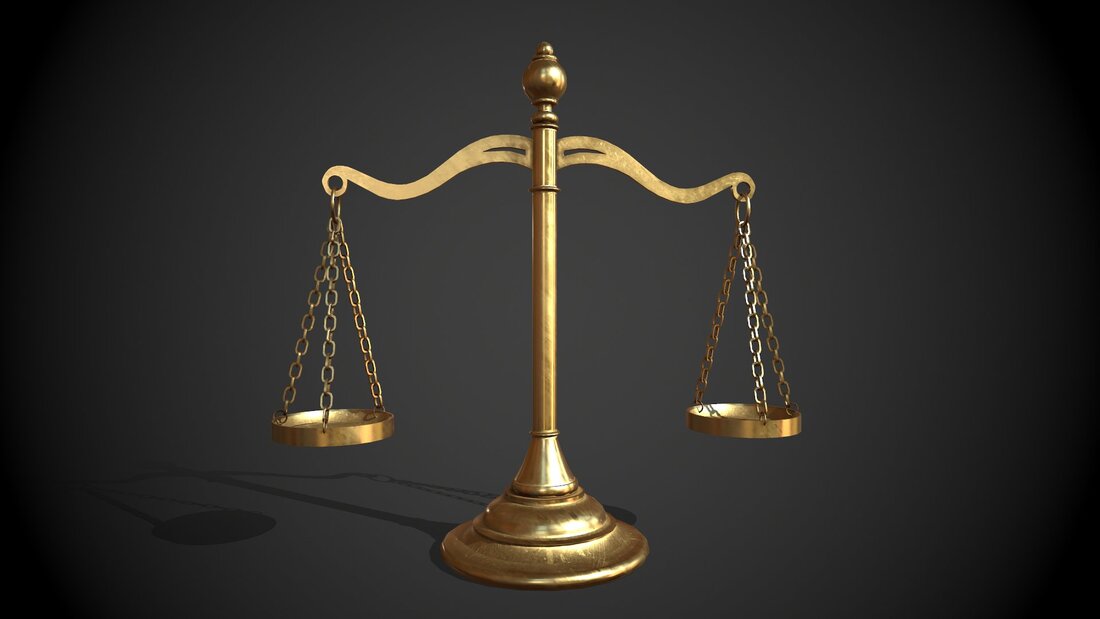 Rabbi David Etengoff Dedicated to the sacred memories of my mother, Miriam Tovah bat Aharon Hakohen, father-in-law, Levi ben Yitzhak, sister, Shulamit bat Menachem, sister-in-law, Ruchama Rivka Sondra bat Yechiel, Chana bat Shmuel, Yehonatan Binyamin ben Mordechai Meir Halevi, Shoshana Elka bat Avraham, Tikvah bat Rivka Perel, Peretz ben Chaim, Chaya Sarah bat Reb Yechezkel Shraga, Shmuel Yosef ben Reuven, Shayndel bat Mordechai Yehudah, the Kedoshim of Har Nof, Pittsburgh, and Jersey City, and the refuah shlaimah of Mordechai HaLevi ben Miriam Tovah, Yocheved Dafneh bat Dinah Zehavah, and the health and safety of our brothers and sisters in Israel and around the world. The Ramban zatzal (Nachmanides, 1194-1270) begins his analysis of our parasha by noting that mishpatim (ordinances and civil laws) are the first category of mitzvot presented. This contrasts with what took place at Marah (Sefer Shemot 15:25), wherein mishpatim are referenced only after chukim (statutes), “there He gave them a statute (chok) and an ordinance (mishpat), and there He tested them.” (This and all Tanach translations, The Judaica Press Complete Tanach). The Ramban proposes that in our parasha, the Almighty wanted to present this group of mitzvot before any other, “…for if a man does not know the laws of house and field or other possessions, he might think that they belong to him and thus covet them and take them for himself.” (Ramban, Commentary on the Torah translation, Rabbi Dr. Charles B. Chavel) A lack of knowledge of this class of mitzvot would, therefore, eventuate in chaos, anarchy and the breakdown of civil society. As such, the Ramban maintains that the first pasuk of our parasha, “And these are the ordinances that you shall set before them,” (21:1) underscores the crucial nature of these “just ordinances, which they [the Jewish people] should establish amongst themselves, so that they will not covet that which does not legally belong to them.” He buttresses his words with a partial quote from a version of Midrash Shemot Rabbah (30:15) that is no longer extant: “the entire Torah depends upon mishpat,” and concludes, “that is why the Holy One, blessed be He, gave the civil laws directly after the Ten Commandments.” Our version of this midrash differs markedly from the Ramban’s text: Rabbi [Yehudah HaNasi] said: “Just like the Holy One, blessed be He, warned us [of the singular import] of the Ten Commandments, so, too, did He warn us regarding the [unique significance] of [observance of] the Law (HaDin). Why is this the case? [This is so, since] the [existence] of the entire world depends upon it. As the text states: ‘A king establishes the country b’mishpat...’ (Sefer Mishle 29:4) and through it [mishpat] Tzion will be built. As the text states: ‘Tzion shall be redeemed b’mishpat and her penitent through righteousness.’” (Sefer Yeshayahu 1:27, midrash translation and brackets my own) Immediately after the word din is deployed in this midrash, citations containing the word, mishpatim, follow—suggesting that it is the most representative and powerful form of din. As we have seen, the Ramban’s text of the midrash reads, “the entire Torah depends upon mishpat,” whereas our version is far broader in scope, “the entire world depends upon it [HaDin=mishpat].” This formulation is congruent with the celebrated axiom of Rabbi Shimon ben Gamliel in Pirkei Avot 1:18: “Rabbi Shimon the son of Gamliel would say: ‘By three things is the world sustained: HaDin (law), HaEmet (truth) and HaShalom (peace). As it is stated, …emet and mishpat shalom (judgment of peace) you shall judge in your cities.’” (Sefer Zechariah 8:16, Pirkei Avot translation, Chabad.com) My rebbe and mentor, Rabbi Joseph B. Soloveitchik zatzal (1903-1993), known as the “Rav” by his followers and disciples, asks a fundamental question regarding the order of the perakim in Parshiot Yitro and Mishpatim that helps illuminate a fundamental dimension of mishpatim: Following the giving of the Ten Commandments [Parashat Yitro], the Torah should have proceeded immediately with Chapter 24 of Parashat Mishpatim, in which God tells Moshe to seal the covenant with the people. Instead, there is an interruption between these two chapters. Parashat Mishpatim, with its many detailed laws of Nezikin [torts], seems to depart from the context…Why was it given such preference? (This and the following Rav Soloveitchik quotes, Darosh Darash Yosef: Discourses of Rav Yosef Dov Halevi Soloveitchik on the Weekly Parashah, Rabbi Avishai C. David, editor, pages 165-166, brackets and underlining my own.) The Rav’s answer to his question gives powerful voice to the intrinsic meaning of mishpatim: Parashat Mishpatim is not only a description of laws between human beings and a moral code. It lays out an entire framework of civil relationships. Why should the Torah address the question of financial commitments? Why should the Torah care about the situation of a paid or unpaid watchman? …Parashat Mishpatim discusses issues of kinyanim (acquisitions), hazakot (presumptions of ownership) and shtar (the transfer of promissory notes). These monetary issues have no place in a moral code. The conclusion, then, is that civil laws carry religious significance. Destruction of property and trespassing are not merely violations of civil law but moral transgressions. The analyses of mishpatim undertaken by Midrash Shemot Rabbah, the Ramban and the Rav, lead us to a greater appreciation of their meaning and status within Judaism. The midrash teaches us that the entire world depends on mishpat for its very survival, the Ramban informs us that mishpatim are the lynchpin of civil order and the Rav elucidates their moral significance and role in Jewish thought and practice. Little wonder, then, that Yeshayahu declared so long ago, “Tzion shall be redeemed b’mishpat and her penitent through righteousness.” With Hashem’s help and our fervent desire, may this time come soon and in our days. V’chane yihi ratzon. Shabbat Shalom Past drashot may be found at my blog-website: http://reparashathashavuah.org The email list, b’chasdei Hashem, has expanded to hundreds of people. I am always happy to add more members to the list. If you have family or friends you would like to have added, please do not hesitate to contact me via email [email protected]. *** My audio shiurim on the topics of Tefilah and Tanach may be found at: http://tinyurl.com/8hsdpyd *** I have posted 164 of Rabbi Soloveitchik’s English language audio shiurim (MP3 format) spanning the years 1958-1984. Please click on the highlighted link: The Rav zatzal 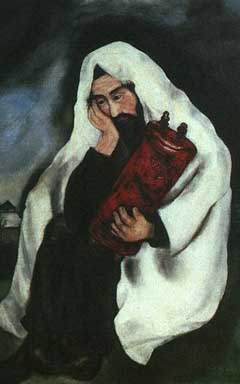 Parashat Yitro 5782, 2022: To Know Hashem Rabbi David Etengoff Dedicated to the sacred memories of my mother, Miriam Tovah bat Aharon Hakohen, father-in-law, Levi ben Yitzhak, sister, Shulamit bat Menachem, sister-in-law, Ruchama Rivka Sondra bat Yechiel, Chana bat Shmuel, Yehonatan Binyamin ben Mordechai Meir Halevi, Shoshana Elka bat Avraham, Tikvah bat Rivka Perel, Peretz ben Chaim, Chaya Sarah bat Reb Yechezkel Shraga, Shmuel Yosef ben Reuven, Shayndel bat Mordechai Yehudah, the Kedoshim of Har Nof, Pittsburgh, and Jersey City, and the refuah shlaimah of Mordechai HaLevi ben Miriam Tovah, Yocheved Dafneh bat Dinah Zehavah, and the health and safety of our brothers and sisters in Israel and around the world. Parashat Yitro is preeminently the parasha of the Asseret Hadibrot (The Ten Commandments). The first of these statements begins with the famous words, “Anochi Hashem Elokecha (I am the L-rd your G-d), Who took you out of the land of Egypt, out of the house of bondage.” (This and all Tanach translations, The Judaica Press Complete Tanach) Nearly all the monei hamitzvot (categorizers of the mitzvot) follow the opinion of the Rambam (Maimonides, 1135-204) and include this as the first of the 248 Positive Commandments. As the Rambam maintains in his Sefer HaMitzvot: The first mitzvah that we are commanded is to know the nature of G‑d’s existence, that is, to know (sh’naida) that He is the Original cause and Source of existence Who brings all creations into being. The source of this commandment is G‑d’s statement (exalted be He), “I am the L-rd your G-d.” (Translation, Rabbi Berel Bell, with my emendations) In his prologue to Mishneh Torah, Hilchot Yesodei HaTorah, the Rambam reiterates that “lei’da sh’yaish sham Elokah—to know that there is G-d,” is a mitzvah, and presents the following textual amplification: The foundation of all foundations and the pillar of wisdom is to know (lei’da) that there is a Primary Being who brought into being all existence. All the beings of the heavens, the earth, and what is between them came into existence only from the truth of His being. (Hilchot Yesodei HaTorah 1:1, translation, Rabbi Eliyahu Touger) What does the Rambam mean when he asserts that in order to fulfill this mitzvah we must know “there is a Primary Being who brought into being all existence.” Is knowing in this context a synonym for understanding? My rebbe and mentor, Rabbi Joseph B. Soloveitchik zatzal (1903-1993), known as the “Rav” by his followers and disciples, clearly thinks otherwise: I do not agree with those who interpret “to know” as meaning “to understand,” indicating that each and every Jew would have to philosophize and investigate for himself all that is relevant to the existence of God…We cannot “understand” the Almighty; His quality is hidden and unfathomable, and in this Maimonides concurred with the Kabbalists who asserted that: “No intellect can apprehend Him.” (On Repentance in the Thought and Oral Discourses of Rabbi Joseph B. Soloveitchik, translated and edited from the Yiddish, Professor Pinchas HaKohen Peli, page 145.) Since, as the Rav notes, “we cannot ‘understand’ the Almighty; His quality is hidden and unfathomable,” what does “lei’da sh’yaish sham Elokah” connote in practice? Fortunately, the Rav provides a clear analysis of this phrase: I would say that “to know” (lei’da) means that our conviction of the existence of God should become a constant and continuous awareness of the reality of God, a level of consciousness never marred by inattention…God should become a living reality that one cannot forget even for a minute. This keen awareness of the existence of God should constitute the foundation of our thoughts, ideas, and emotions in every kind of situation and under all conditions. (Pages 145-146) I believe that the Rav’s explanation of lei’da in reference to the existence of the Almighty is reminiscent of the pasuk we recite at the conclusion of the first paragraph of the Aleinu: “And you shall know (v’ya’da’ta) this day and consider it in your heart, that the L-rd He is G-d in Heaven above, and upon the earth below; there is none other.” (Sefer Devarim 4:39) With Hashem’s help, and our fervent desire, may this verse be our watchword as we strive to know Hashem. V’chane yihi ratzon. Shabbat Shalom Past drashot may be found at my blog-website: http://reparashathashavuah.org The email list, b’chasdei Hashem, has expanded to hundreds of people. I am always happy to add more members to the list. If you have family or friends you would like to have added, please do not hesitate to contact me via email [email protected]. *** My audio shiurim on the topics of Tefilah and Tanach may be found at: http://tinyurl.com/8hsdpyd *** I have posted 164 of Rabbi Soloveitchik’s English language audio shiurim (MP3 format) spanning the years 1958-1984. Please click on the highlighted link: The Rav zatzal 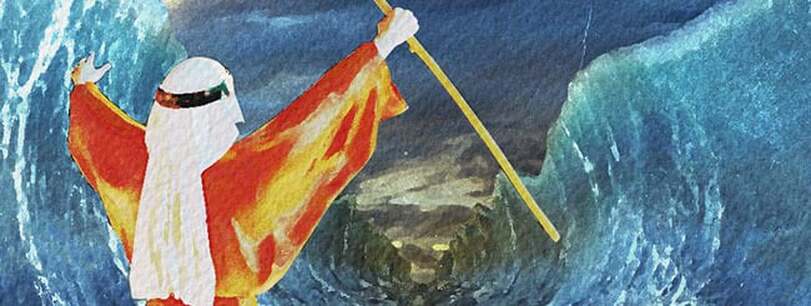 Rabbi David Etengoff Dedicated to the sacred memories of my mother, Miriam Tovah bat Aharon Hakohen, father-in-law, Levi ben Yitzhak, sister, Shulamit bat Menachem, sister-in-law, Ruchama Rivka Sondra bat Yechiel, Chana bat Shmuel, Yehonatan Binyamin ben Mordechai Meir Halevi, Shoshana Elka bat Avraham, Tikvah bat Rivka Perel, Peretz ben Chaim, Chaya Sarah bat Reb Yechezkel Shraga, Shmuel Yosef ben Reuven, Shayndel bat Mordechai Yehudah, the Kedoshim of Har Nof, Pittsburgh, and Jersey City, and the refuah shlaimah of Mordechai HaLevi ben Miriam Tovah, Yocheved Dafneh bat Dinah Zehavah, and the health and safety of our brothers and sisters in Israel and around the world. Our parasha contains the sole instance of the word “chamushim” in the Five Books of the Torah: “So G-d led the people around [by] way of the desert [to] the Red Sea, and the children of Israel went up chamushim from the land of Egypt.” (Sefer Shemot 13:18, this and all Tanach translations, The Judaica Press Complete Tanach, with my emendations) Midrash Mechilta on our pasuk suggests two peshat-level interpretations of our term: Chamushim can only mean armed (mezuyanim). So, too does the text state: “…and you, all the warriors, shall cross over chamushim (armed) before your brothers, and you shall help them.” (Sefer Yehoshua 1:14) Another interpretation: Chamushim can only mean zealous (mezurazin). As the text states: “And the children of Reuven, and the children of Gad, and half the tribe of Menashe, passed over chamushim (in a zealous manner) before b’nai Yisrael, as Moshe had spoken to them.” (Sefer Yehoshua 4:12) In addition, the Mechilta notes that chamushim is written without a vav (shurook) following the Hebrew letter mem, which allows it to be midrashically viewed as a variant of chamisha (five), chamishim (fifty) or chamash maot (five hundred): Another explanation: One [Jew] out of five, and there are those that say one [Jew] out of fifty, and there are others who say one [Jew] out of five hundred [left Egypt] … Rabbi Nehorai said, “I hereby take an oath based on the holiness of the Korbanot service in the Beit HaMikdash as my witness, that not even one out of five hundred [left Egypt]! Instead, uncountable numbers of Jews died in Egypt, and when did they die? They died during the three days of the Plague of Darkness… (Translations my own) On measure, this grim passage leaves us wondering what occurred in Egypt to lead to this disastrous outcome. Midrash Tanchuma addresses this concern in its discussion of the Plague of Darkness: What is the reason for the Plague of Darkness? … [The Plague of Darkness took place] because there were those within the Jewish people who had patrons among the Egyptians. They had great honor and wealth and did not wish to leave Egypt. The Holy One blessed be He said to Himself, “if I bring a plague upon them that everyone can witness and they die, then the Egyptians will say, ‘just like this happened to us, so, too, did this happen to them.’” Therefore, He brought the Plague of Darkness on the Egyptians for three days, “They did not see each other, and no one rose from his place for three days …” (Sefer Shemot 10:23, Midrash Tanchuma, Parashat Va’era section 14, translation my own) In sum, the Plague of Darkness took place so that when the assimilationists among the Jews in Egypt refused to be redeemed, their death could not be witnessed by the Egyptians. This ensured that the latter would recognize the contrast between how the Almighty treated them and how he treated us. As the Midrash Mechilta continues and states: “They [the non-assimilationist Jews] buried their dead and thanked and gave praise to the Holy One blessed be He that their enemies did not see [the many burials] and rejoice in their downfall.” (Brackets my own) A very different, and uplifting, approach to the term “chamushim” is offered by a number of the early Chasidic rebbes. Like the Mechilta, they recognize that chamushim written without a vav enables it to be read as chamishim (fifty). Yet, unlike the Mechilta that focuses on the Jews who were excluded from the Exodus, these thinkers suggest that chamishim refers to the chamishim sha’arei binah, the 50 Gates of Understanding discussed in the Talmud Bavli, Rosh Hashanah 21b and Nedarim 38a, and various passages in the Zohar. One of the clearest explanations of this position is presented by Rabbi Ya’akov Yosef of Polonne zatzal (1710-1784) in his Torah commentary, Tzafnat Paneach: And b’nai Yisrael went up from the Land of Egypt through binah, the 50th gate of kedushah (holiness) and chasidut (piety). [In so doing,] they left behind the 50 Gates of Tumah (Impurity) [of Egypt] and moved toward the 50 Gates of Holiness; and this is the freedom [that is symbolized] through the order [and intrinsic meaning] of the [Four] Cups [of Wine] on the first night of Pesach… (Parashat Beshalach, translation and brackets my own) As we find in many other sources, Rav Ya’akov Yosef views Egypt as the preeminent place of tumah in the ancient world. As such, he reads, “the children of Israel went up chamushim from the land of Egypt,” as referring to the existential and spiritual transformation that took place when our forebears left the 50 Gates of Tumah behind and embraced binah, the 50th gate of kedushah and chasidut. At long last, we were on our way to the ultimate freedom we would experience upon receiving the Torah on Mount Sinai—50 days later. With Hashem’s help and our fervent desire, may we also guide ourselves by the pure light of binah, kedushah and chasidut that are the hallmarks of our holy Torah. V’chane yihi ratzon. Shabbat Shalom Past drashot may be found at my blog-website: http://reparashathashavuah.org The email list, b’chasdei Hashem, has expanded to hundreds of people. I am always happy to add more members to the list. If you have family or friends you would like to have added, please do not hesitate to contact me via email [email protected]. *** My audio shiurim on the topics of Tefilah and Tanach may be found at: http://tinyurl.com/8hsdpyd *** I have posted 164 of Rabbi Soloveitchik’s English language audio shiurim (MP3 format) spanning the years 1958-1984. Please click on the highlighted link: The Rav zatzal 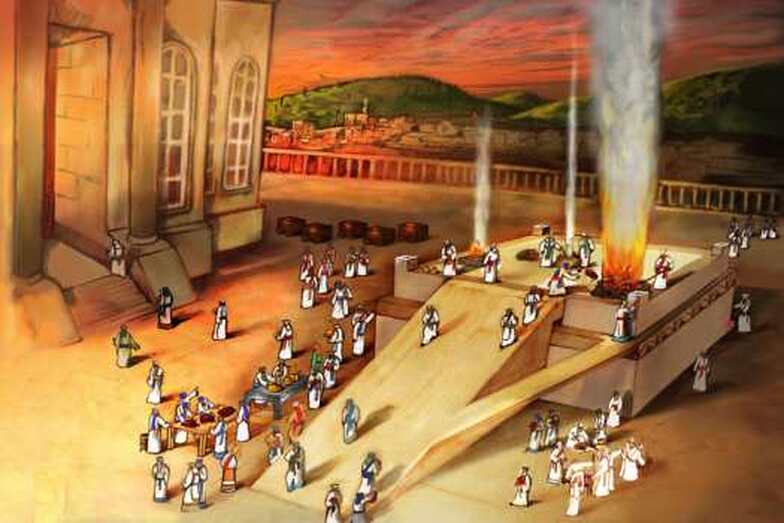 Rabbi David Etengoff Dedicated to the sacred memories of my mother, Miriam Tovah bat Aharon Hakohen, father-in-law, Levi ben Yitzhak, sister, Shulamit bat Menachem, sister-in-law, Ruchama Rivka Sondra bat Yechiel, Chana bat Shmuel, Yehonatan Binyamin ben Mordechai Meir Halevi, Shoshana Elka bat Avraham, Tikvah bat Rivka Perel, Peretz ben Chaim, Chaya Sarah bat Reb Yechezkel Shraga, Shmuel Yosef ben Reuven, Shayndel bat Mordechai Yehudah, the Kedoshim of Har Nof, Pittsburgh, and Jersey City, and the refuah shlaimah of Mordechai HaLevi ben Miriam Tovah, Yocheved Dafneh bat Dinah Zehavah, and the health and safety of our brothers and sisters in Israel and around the world. The first pasuk of our parasha continues the narrative of the Ten Plagues and serves as a prologue to the Plague of Locusts: “Hashem said to Moshe: ‘Bo (Come) to Pharaoh, for I have hardened his heart and the heart of his servants, in order that I may place these signs of Mine in his midst.’” (Sefer Shemot 10: 1, all Tanach translations, The Judaica Press Complete Tanach) This verse presents us with an exegetical challenge. Why did the Torah write “bo,” instead of the much more commonly found, “lech (go)?” This question has long intrigued Torah commentators, as demonstrated by its presence in the 12th or 13th century midrashic compilation, Midrash Aggadah: “Why does the Torah state regarding this plague, ‘bo to Pharoah,’ when it [bo] is found by no other plague; for in every other instance we find, ‘lech to Pharoah.’” (Solomon Buber edition, Parashat Bo, 10:1, translation my own) As one might expect, Chazal have suggested many answers to this question. One of my favorite responses is offered by Rabbi Menachem Mendel Morgenstern of Kotzk zatzal (the Kotzker rebbe, 1787-1859): “Lech to Pharoah” is not written here; instead, we find, “bo to Pharoah.” The reason for this linguistic change is that one can never walk away from before the Holy One blessed be He; moreover, it is impossible to distance yourself from Him. This is the case since He is found everywhere. [As the prophet Yeshayahu said:] “And one [Angel] called to the other and said, ‘Holy, holy, holy is the L-rd of Hosts; the whole earth is full of His glory.” (6:3) Therefore, it is written, bo,” [in our verse] connoting the notion that [Hashem is telling Moshe,] “Bo with Me, for behold, I am with you wherever you shall go.” (Rabbi Ya’akov Greenberg, Itturei Torah, page 78, translation and brackets my own) Quoting Yeshayahu’s celebrated verse, the Kotzker rebbe focuses on Hashem’s omnipresence in the world emphasizing the notion that the Almighty was ever with Moshe. My rebbe and mentor, Rabbi Joseph B. Soloveitchik zatzal (1903-1993), known as the “Rav” by his followers and disciples, presents a strikingly parallel analysis in his posthumous work, Festival of Freedom: When God chose Moses, he was very reluctant to accept the mission…Moses said to God: Who am I [mi anochi], that I should go to Pharoah, and that I should take the children of Israel out of Egypt? (3:11)—who am I, that I am worthy of becoming the redeemer? God answered him, For I will be with you [ki eyeh imach] (3:12). God promised Moses that he would never desert him; He would participate in the implementation of the mission, and together they would enter Pharoah’s chambers. Therefore, when God instructed Moses to appear before Pharoah, He used the imperative bo instead of lech. When Moses addresses Pharoah, God will be present; when he raises the staff, God will be with him. In effect, God says, bo imadi el paroah, Come along with me to Pharoah. (Pages 149-150 underlining and brackets my own) Moshe’s question, “mi anochi, who am I?” is something many of us ask ourselves when facing life’s challenges. Like Moshe Rabbeinu, we can take comfort in Hashem’s assurance, “ki eyeh imach, I will be with you.” We are never alone. As the Kotzker rebbe and the Rav teach us, Hashem is ever-present in our lives and whispers to each of us, “bo imadi, come with Me.” May we be zocheh to feel His grace as we walk upon the path of life. V’chane yihi ratzon. Shabbat Shalom Past drashot may be found at my blog-website: http://reparashathashavuah.org The email list, b’chasdei Hashem, has expanded to hundreds of people. I am always happy to add more members to the list. If you have family or friends you would like to have added, please do not hesitate to contact me via email [email protected]. *** My audio shiurim on the topics of Tefilah and Tanach may be found at: http://tinyurl.com/8hsdpyd *** I have posted 164 of Rabbi Soloveitchik’s English language audio shiurim (MP3 format) spanning the years 1958-1984. Please click on the highlighted link: The Rav zatzal |
Details
Archives
July 2024
AuthorTalmid of Rabbi Soloveitchik zatzal Categories |
- Blog: Rabbi David Etengoff: Parashat HaShavuah
- Sefer Bereishit 5784&5785
- Sefer Shemot 5784&5785
- Sefer Vayikra 5784&5785
- Sefer Bamidbar 5784 &5785
- Sefer Bereishit 5782&5783
- Sefer Shemot 5782&5783
- Sefer Vayikra 5782&5783
- Sefer Bamidbar 5782&5783
- Sefer Devarim 5782&5783
- Sefer Bereishit 5780& 5781
- Sefer Shemot 5780&5781
- Sefer Vayikra 5780&5781
- Sefer Bamidbar 578&5781
- Sefer Devarim 578&5781
- Sefer Bereishit 5778&5779
- Sefer Shemot 5778&5779
- Sefer Vayikra 5778&5779
- Sefer Bamidbar 5778&5779
- Sefer Devarim 5778&5779
- Sefer Bereishit 5776&5777
- Sefer Bereishit 5774&5775
- Sefer Bereishit 5772&5773
- Sefer Bereishit 5771&5770
- Sefer Shemot 5776&5777
- Sefer Shemot 5774&5775
- Sefer Shemot 5772&5773
- Sefer Shemot 5771&5770
- Sefer Vayikra 5776&5777
- Sefer Vayikra 5774&5775
- Sefer Vayikra 5772&5773
- Sefer Vayikra 5771&5770
- Sefer Bamidbar 5776&5777
- Sefer Bamidbar 5774&5775
- Sefer Bamidbar 5772&5773
- Sefer Bamidbar 5771&5770
- Sefer Devarim 5776&5777
- Sefer Devarim 5774&5775
- Sefer Devarim 5772&5773
- Sefer Devarim 5771&5770
 RSS Feed
RSS Feed
